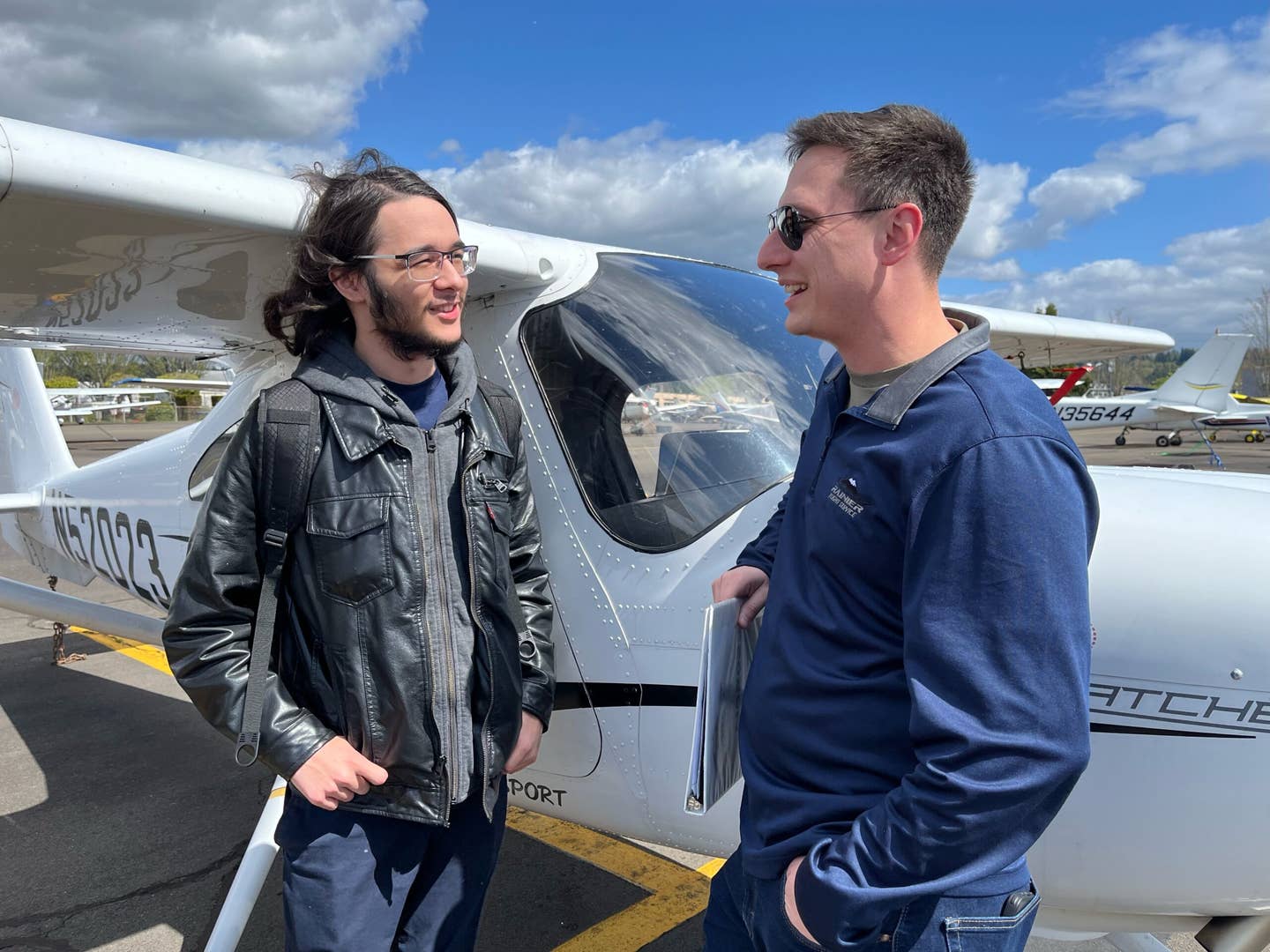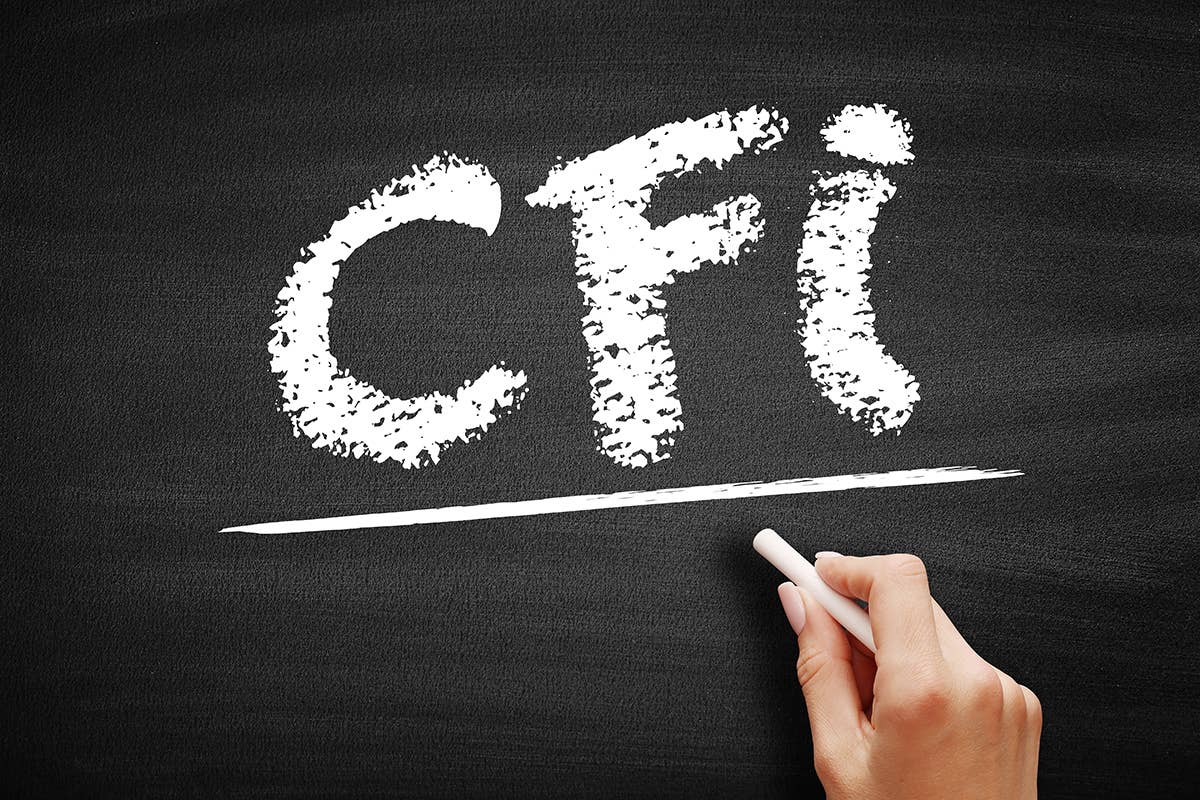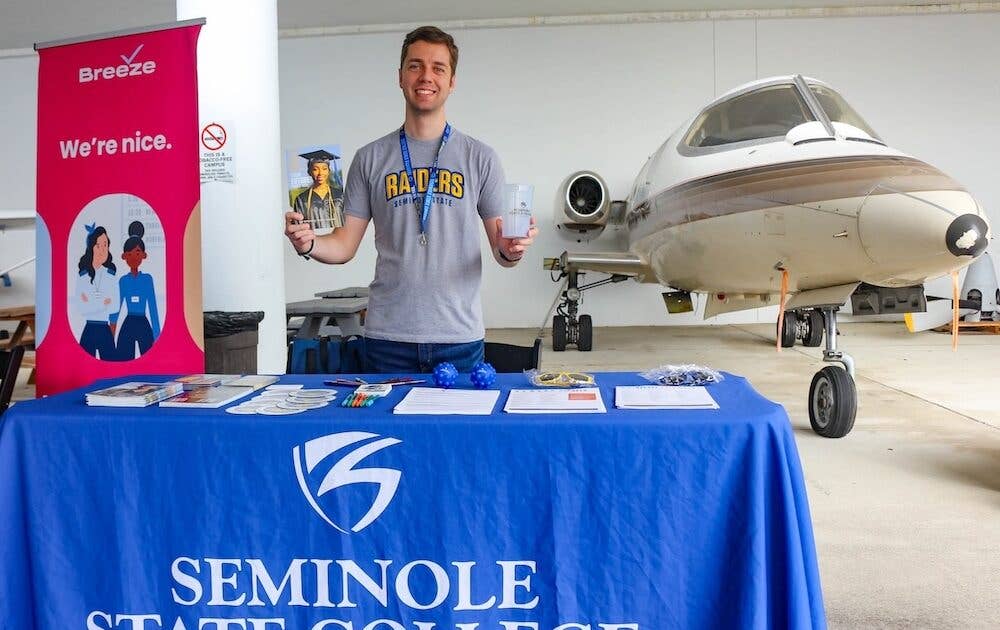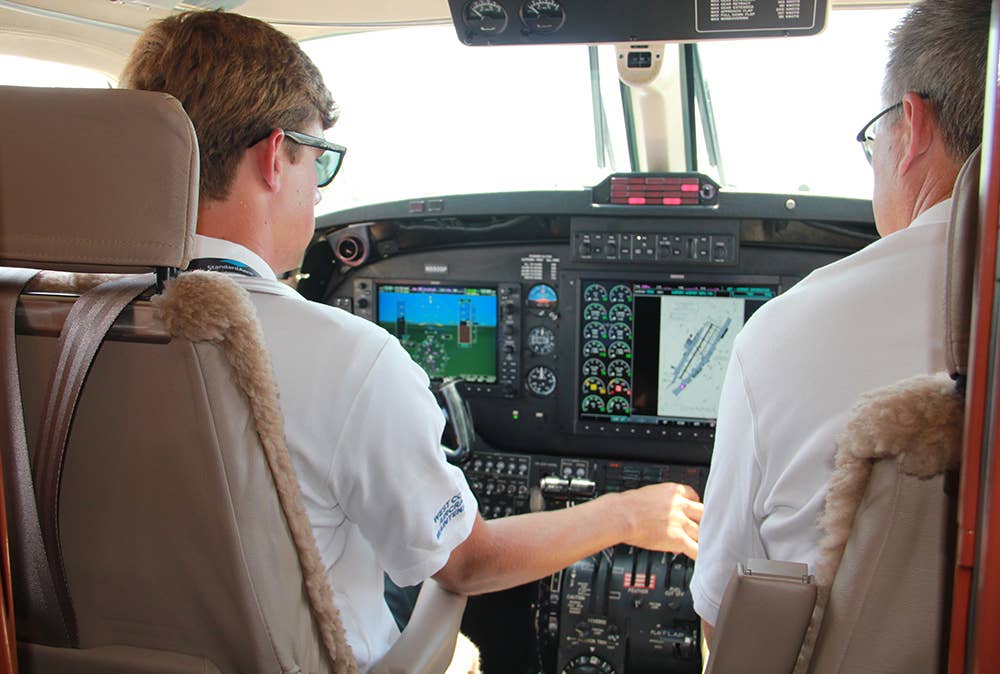Improving CFI Training Remains a Never-Ending Goal
Remember that becoming a good flight instructor is a journey, not a destination.
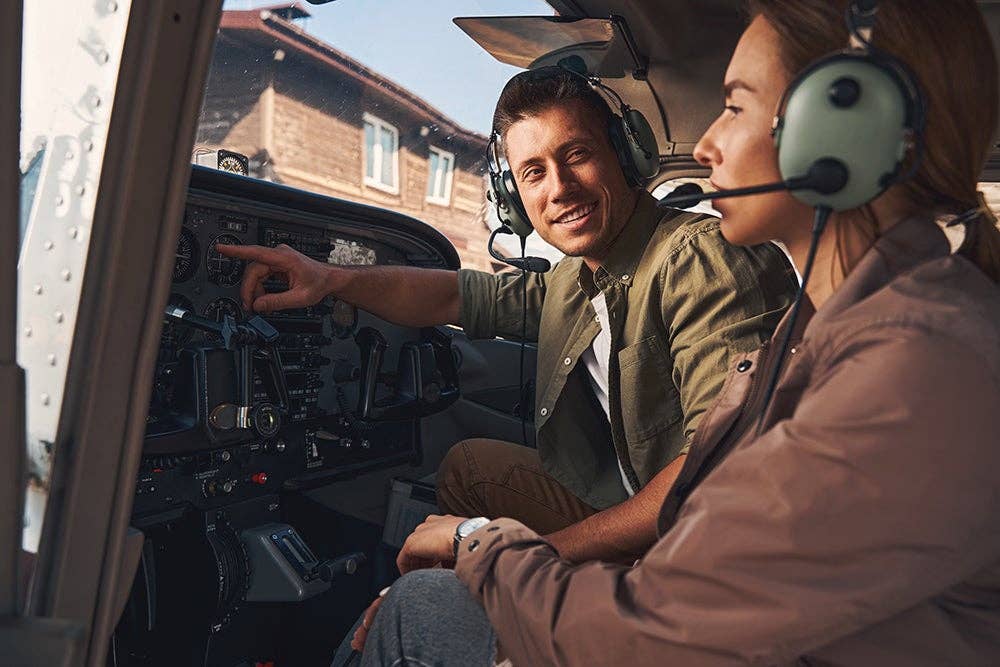
Becoming a good flight instructor is a journey, not a destination. [File Photo: Adobe Stock]
I have just returned from EAA AirVenture in Oshkosh, Wisconsin, where part of my experience involved communicating with other flight instructors. We exchanged ideas about better ways to teach in order to create safer pilots with knowledge and skill above the bare minimum required for certification as outlined in the Airman Certification Standards (ACS).
This year I met several newly minted flight instructors and flight instructors in training who wish to do more than build their hours from the right seat. They want to be good teachers of flight. I really hope they meant what they said.
Training the Trainers
One of my great joys is working with CFI applicants who share the mindset that instruction is important and not just a way to build hours.
I will train teachers, not time builders. To do otherwise would be a disservice to future pilots.
The Problem With Shortcuts
We compared notes about applicants we'd encountered who had gone through accelerated training programs for CFIs.
While there are people who do very well with "quick ticket" training, the fact is a few day courses don’t really teach you how to be a teacher. The only thing that does this is experience.
We all start out green. Time and practice is the only way to achieve seasoning.
Nearly everyone had a story to tell about the CFI applicant who wanted to take shortcuts just to pass the check ride.
They didn't know how to organize a lesson, create a lesson plan, or offer a critique, but they had memorized the check ride. They parroted things they read off the internet. The mindset was "you'll learn to teach after you get the ticket."
This is unfair to the person who you are supposed to be teaching. They are paying for instruction, and you should be able to deliver. If you cannot do that, get out of the right seat.
Options to Improve CFI Training
Ideas were floated on improving the quality of flight instruction in the U.S.
The top suggestion was to increase CFI pay to entice them to stay on the job for more than one year. That’s the average time spent teaching for the pilot who is building their hours toward ATP minimums.
The theory is that spending more time as a CFI would enable these people to become better teachers. More experience doing something does tend to improve your performance. I submit, however, that unless that person really wants to be a CFI, this amounts to putting lipstick on a pig.
If the candidate thinks flight instruction is beneath them—and there are some who do—no amount of money in the world is going to change that. Often their attitude comes across in the cockpit and the classroom.
Also, many smaller flight schools don’t have the revenue to support this business model, or they see all CFIs easily replaceable, saying their lack of experience justifies the low pay.
In many cases, working full-time as a CFI is too financially challenging. And even though they are good teachers and enjoy the job, many CFIs leave the profession for higher paying careers in other industries.
Quality Over Quantity
Another suggestion was to create a training metric for CFIs, such as a set number of hours logged as dual instruction received post-commercial certificate to qualify for the CFI check ride, or be paired up with a CFI with more experience in a mentoring relationship before you are permitted to endorse anyone for a check ride. For example, the newly minted CFI would need 100 hours dual before they can sign off a client.
These are intriguing ideas, but I am reasonably certain that in the U.S. with the pilot shortage and the "hurry up" mentality of so many flight students, any FAA rule changes would go over like a skunk on the dance floor at prom. Frankly, it would be too cumbersome and limiting in the training environment we have today.
CFI Responsibility
There were also discussions about stressing the role of the CFI as a teacher and a coach.
Our job is to guide the learner in all facets of training air and ground. The learners don't know what they don't know, and no CFI or flight school should take advantage of their lack of experience.
There was a particularly painful story about a private pilot candidate who was at a school that provided both Part 141 and Part 61 training. The learner was flying under Part 61 and limited to flying just once a week, although they had the money and time to fly more frequently.
According to the learner, as they compared flying lessons to music lessons, which are often just once a week, they didn't know that flying more frequently would accelerate the learning process.
The CFIs—there were several—were fine with the once-a-week lesson, and according to the learner, never suggested an increase in lesson frequency. The learner allegedly spent thousands of dollars and several months "taking rides with multiple CFIs" but never soloed.
If a CFI determines they cannot teach a particular client, the ethical thing to do is terminate the relationship. If you're both frustrated, it's in both of your best interests. It is far better if your CFI says, "I am not the right instructor for you," than for them to keep showing up and taking your time and money. Often this breeds resentment.
Flight Training Is a Partnership
Sometimes CFIs encounter pilot applicants who have a participation trophy mindset when it comes to flight training.
Just showing up and going through the motions is not enough in aviation. We need to be clear that both the CFI and learner need to apply themselves and be accountable for their performance.
For learners who are successful in other aspects of their lives, this self-reflection can be painful at times. If you don't meet performance standards as put forth in the ACS, it doesn't make you a bad person. It just means you need more practice or a different approach to learning.
You won’t enjoy every part of your training— there will be days it seems tedious and difficult. There will be the dreaded learning plateaus that will make you question your life choices. There will also be those days with "aha!" moments, where the stars align, and the knowledge and skill come together.
You will get a sense of satisfaction and accomplishment that a relatively few in the human population achieve. This is particularly true when the designated pilot examiner (DPE) hands you your temporary certificate.
But to get there you need to work with your CFI—and they need to work with you.

Sign-up for newsletters & special offers!
Get the latest FLYING stories & special offers delivered directly to your inbox

